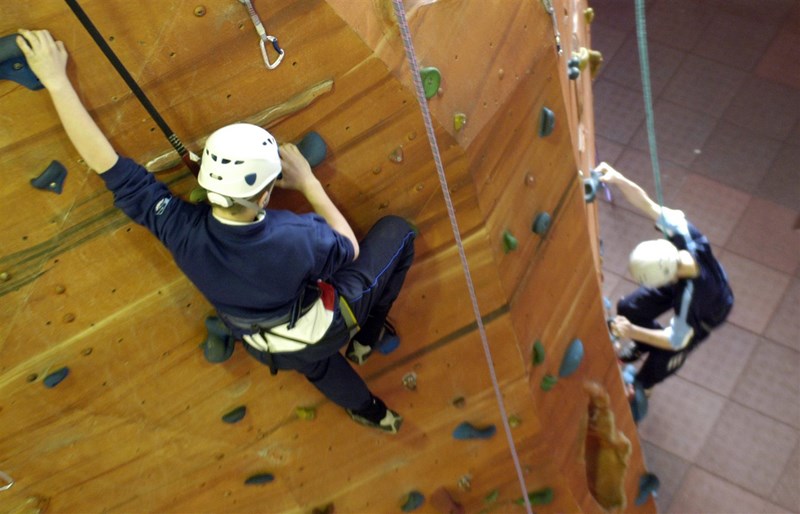
Penny Roberts is a volunteer with the British Mountaineering Council, assisting them with their safeguarding policies and practice.
From her professional experiences as a nurse, a safeguarding trainer for Bradford Local Authority and the owner of a care agency, Penny has developed a real understanding of the safeguarding of adults.
Penny also has a personal interest in safeguarding. Penny’s son Peter is 18 and has been attending his local climbing wall at the Harrogate Climbing Centre since a school visit. He attended a special school and has a diagnosis of PDA – Pathological Demand Avoidance Syndrome – a condition that is being increasingly recognised as part of the autistic spectrum In addition, since a sporting accident Penny is physically disabled, she uses an electric wheelchair and receives support from a personal assistant.
Here Penny shares some of the things that the club are putting into place that help to support Peter, and them as a family.
Penny’s tips for sport and activity organisations with members on the autistic spectrum
Get to know the person
Everyone on the autistic spectrum is different and just because they have the same label their behaviour and needs are likely to all differ.
‘The staff at the centre all know Peter and are able to spot if he is happy or unhappy. Everyone at the club is really friendly, there is always a member of staff that Pete feels comfortable to talk to if he has a problem.
Ask for information from the person and those closest to them
‘I gave the club some information from school about PDA and how to specifically work with Peter, Kirsty (manager) wrote a sheet of tips for the coaches that worked really well’.
Give the tips to coaches, don’t just keep them in a folder in the office
‘One of the main features of PDA is demand avoidance so requests have to be framed to enable Peter to respond positively. Things basically have to feel like Peter’s choice’.
Stay aware of people but don’t crowd them
‘Peter likes to do his own thing at the club and wouldn’t want a babysitter’
Plan things like trips and competitions well in advance
‘Peter likes routine and needs time to adjust to new things. He also needs to know who will be there with him.’
Make provision to support needs
‘Peter is very sensitive to noise and so his sessions are planned to correspond with quieter times. Music is turned down when he is in a lesson.’
‘I have a condition that means that I need to be warm and I find the climbing area cold and noisy. Manchester Climbing Centre provided a warmer quieter room for those who needed ‘a retreat’ from this environment during the paraclimbing competition. Competitors could be warm, safe, leave belongings in a safe place and get away from the noise and confusion of the competition it was a great safeguarding idea but also showed courtesy on a very busy day.’
Think about how members can take part in social activities, these can be as important as the sport or activity
‘Peter likes to use the café without assistance like any other teenager, but gets stressed and confused when paying. The canteen set up a tab for him that could be settled at the end of the day. This reduces stress helps him manage money.
‘To my mind people think of ‘safeguarding’ as a new responsibility we now have; we have to write a policy and show we’re enforcing it to protect insurance and liability. But if we are protecting ourselves from blame we are not writing the policy for the right reason. Yes, all of the above is important but what does it mean if we don’t care and watch out for those who are vulnerable?’- Penny Roberts – in conversation with Nicola Dean, ACT Safeguarding Adults in Sport Manager
For more information
Information about climbing in Harrogate
www.harrogateclimbingcentre.com
Information about the British Mountaineering Council
For training on including people on the autistic spectrum in sport and physical activity
http://www.autism.org.uk/professionals/training-consultancy/courses/sports.aspx
